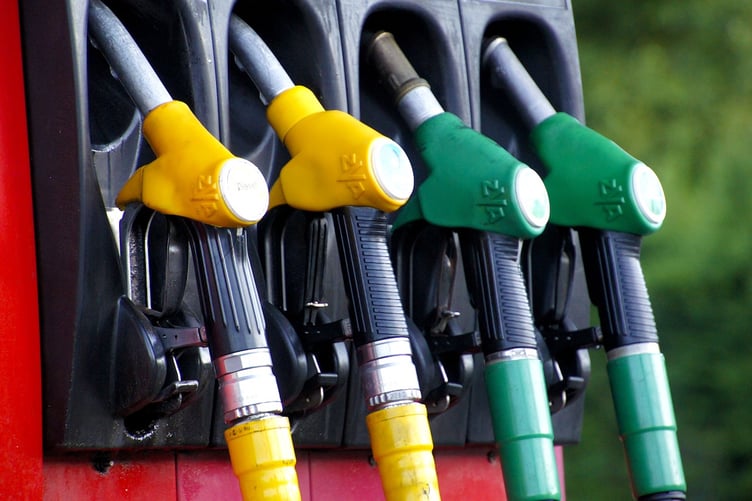FUEL prices have hit an all-time high as the cost of living skyrockets. While all of us are feeling the effect of these rises, how are local businesses, reliant on fuel, coping with increasing costs?
According to the RAC, it now costs £98 to fill the average car with petrol and a shocking £101.86 to fill the average diesel car.
Simon Williams, RAC fuel spokesperson said: “Drivers need to brace themselves for average fuel prices rocketing to £2 a litre which would mean a fill-up would rise to an unbelievable £110.“
We strongly urge the government to take drastic action to help soften the impact for drivers from these never-before-seen pump prices.”
However, while for many of us driving is simply a means of getting from A to B, there are some for which their car is a source of income.
Cymru cabs, one of Aberystwyth’s biggest taxi companies has expressed the difficulties their drivers are facing with rising fuel costs.
Speaking to Cambrian News, Daniel Page, owner of Cymru Cabs and Ciaran Neil, driver for the company said: “We and other taxi providers are seriously struggling at the moment due to extreme rises to the costs of fuel, servicing & maintenance.
“Providing a service is forever costing more and more. It is beginning to look unfeasible to keep providing these services if prices continue to rise.
”The pair say that despite rising costs, they are unable to increase their rates to help support the business.“As taxi service providers, we don’t have a say in price increases, it’s strictly down to Ceredigion County Council to set our rates for us for all of us,” they said.
“We have been pressuring them since September 2021 to get a much-needed increase and it has been a real struggle to get them to listen to us. A meeting was finally held back in March 2022 and it was finally agreed that they would look at increasing them.
”Taxi services are not the only sector to be suffering however. Nick McNally works for Mid Wales Freight, specialising in the delivery of art for artists, galleries and museums all over Europe.
Speaking to the Cambrian News, Nick said: “I have three vans on the road and the largest one now costs nearly £200 to fill up. I average approximately 2,000 miles per week which means even with fuel cards, which allow me a small discount, on a busy week my fuel bill can come close to £1,000.
“Because of the type of loads I carry my driving style means that I am one of the few people who actually come close to manufacturers fuel economy figures but even so a price rise is inevitable.
“This leads to a problem as I frequently quote for deliveries months ahead and have a lot of work quoted for that is not happening until 2023,” he added.
While Nick is confident that his business will survive the rising costs, he is not so sure about others.
“My heart goes out to care workers, NHS staff and particularly district and community nurses who use their own vehicles and haven’t had an increase in their mileage rates,” he said.
“People in rural areas need their own transport due to the nature of the geography of our county. Buses can’t serve all villages 24 hours per day seven days per week. My business should survive but others won’t.
“The increases in fuel prices mean that people will soon be unable to afford to travel to work. It must be remembered that every time the price of your fuel goes up that the government puts more money in their coffers because the man on the street pays more VAT.”



1.jpeg?width=209&height=140&crop=209:145,smart&quality=75)

Comments
This article has no comments yet. Be the first to leave a comment.